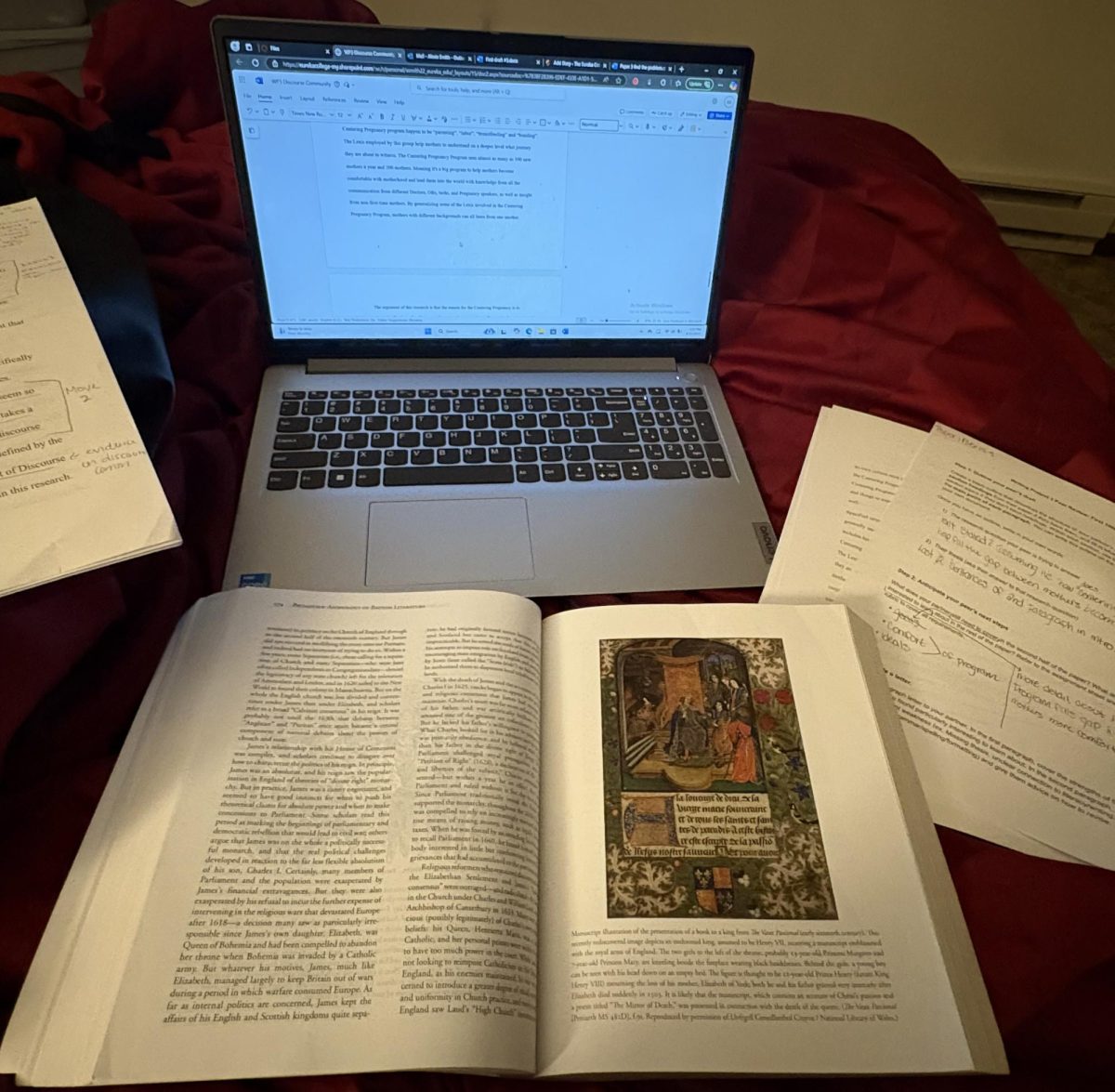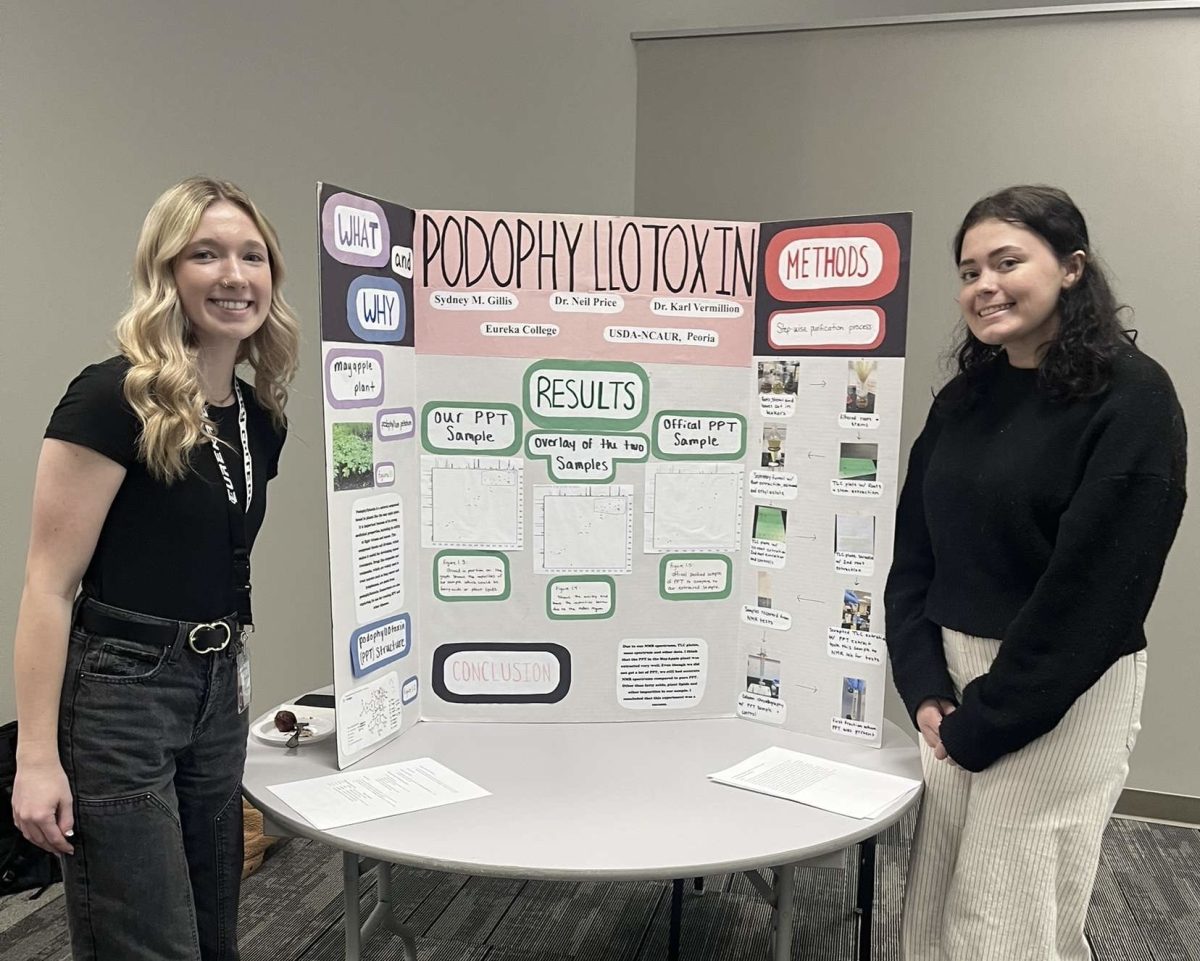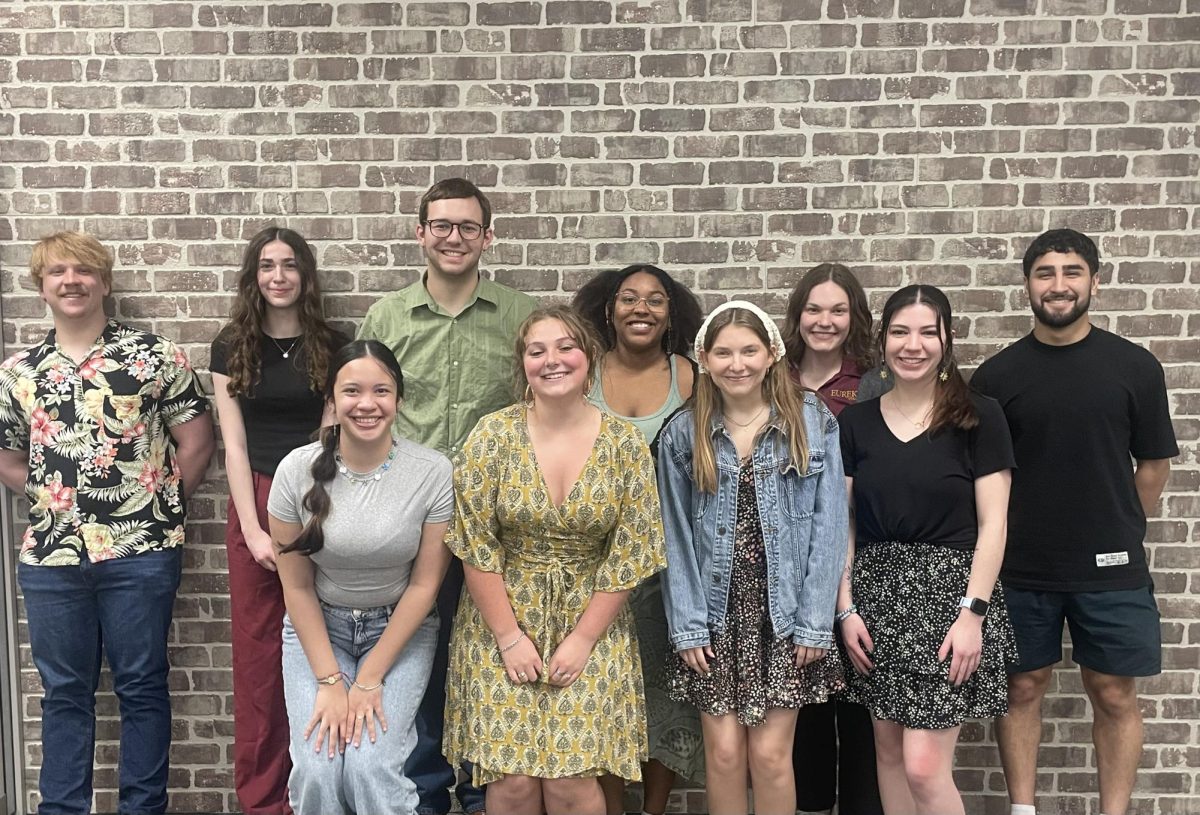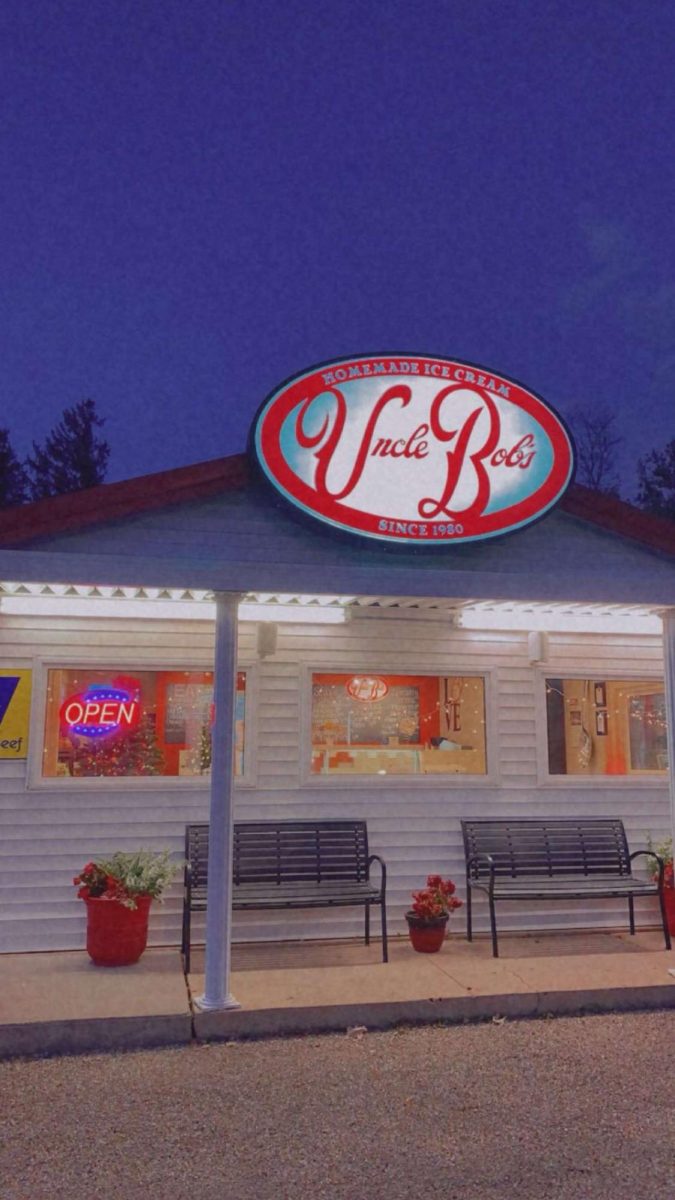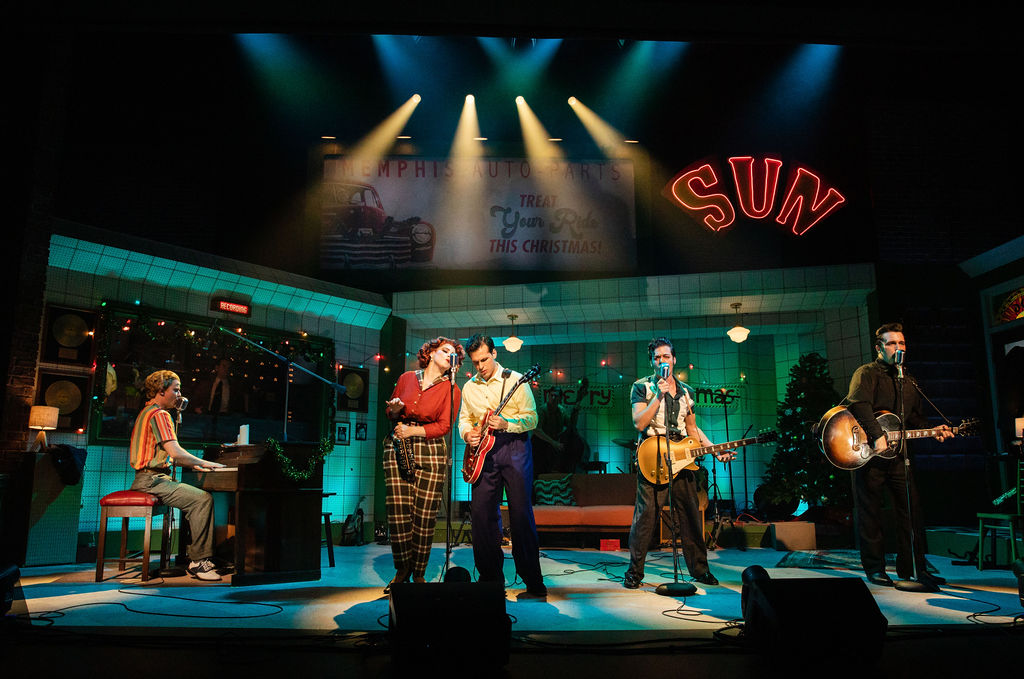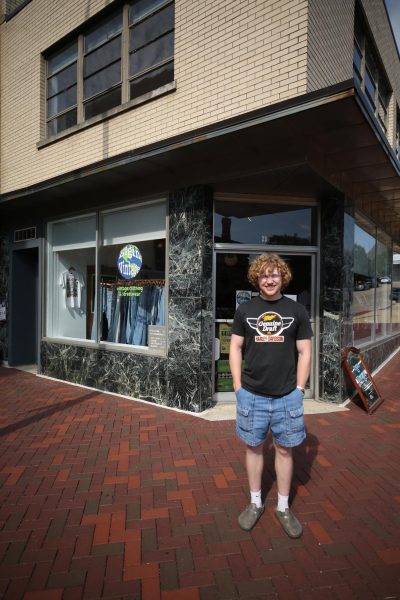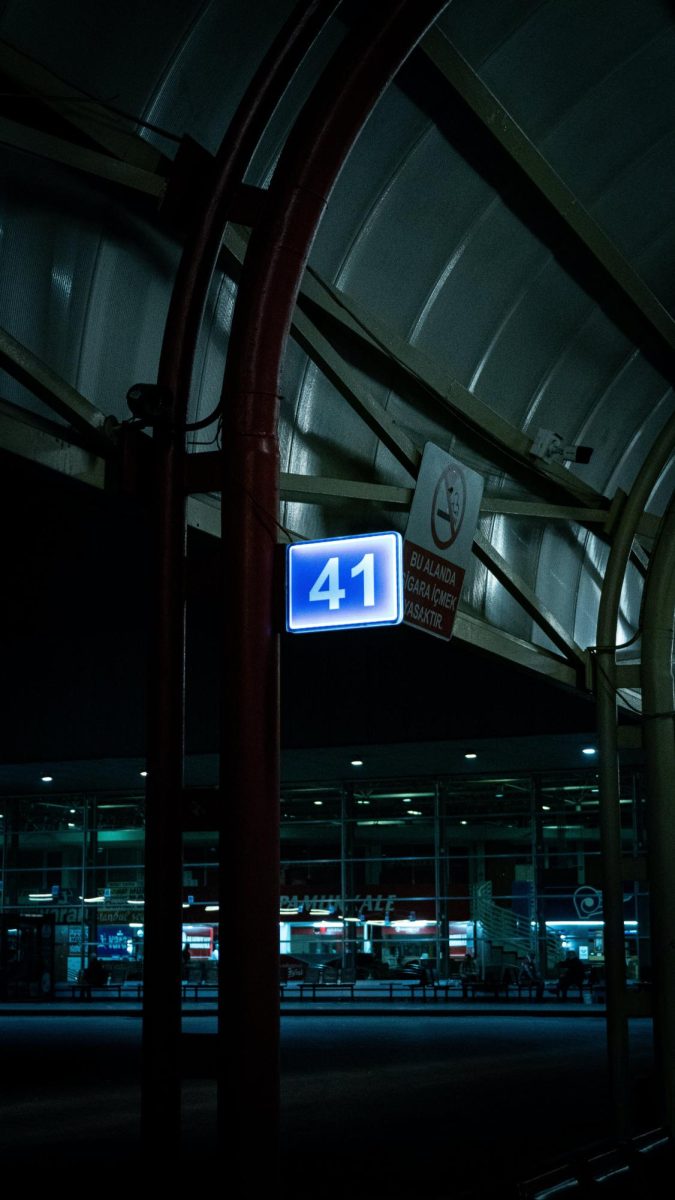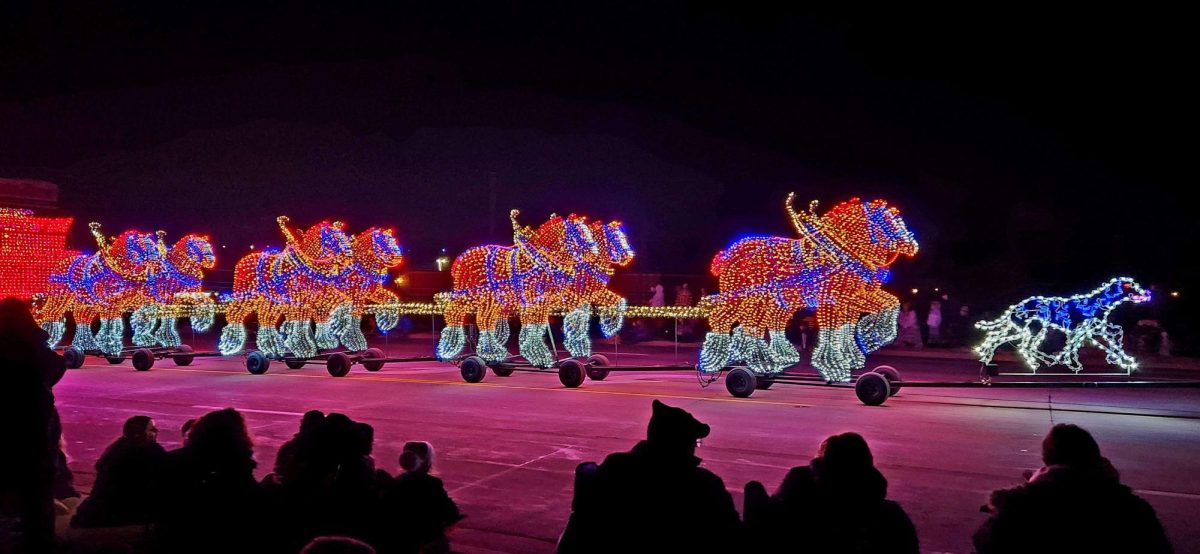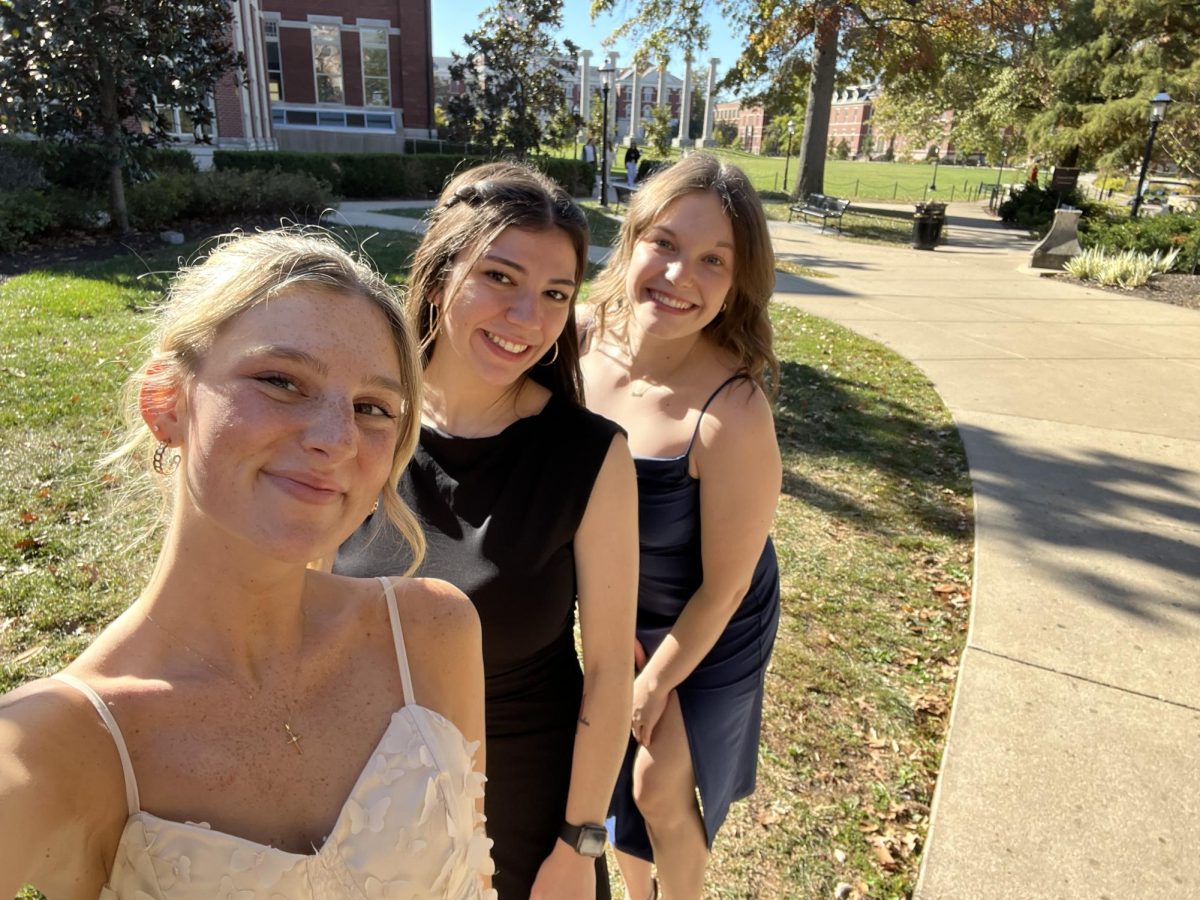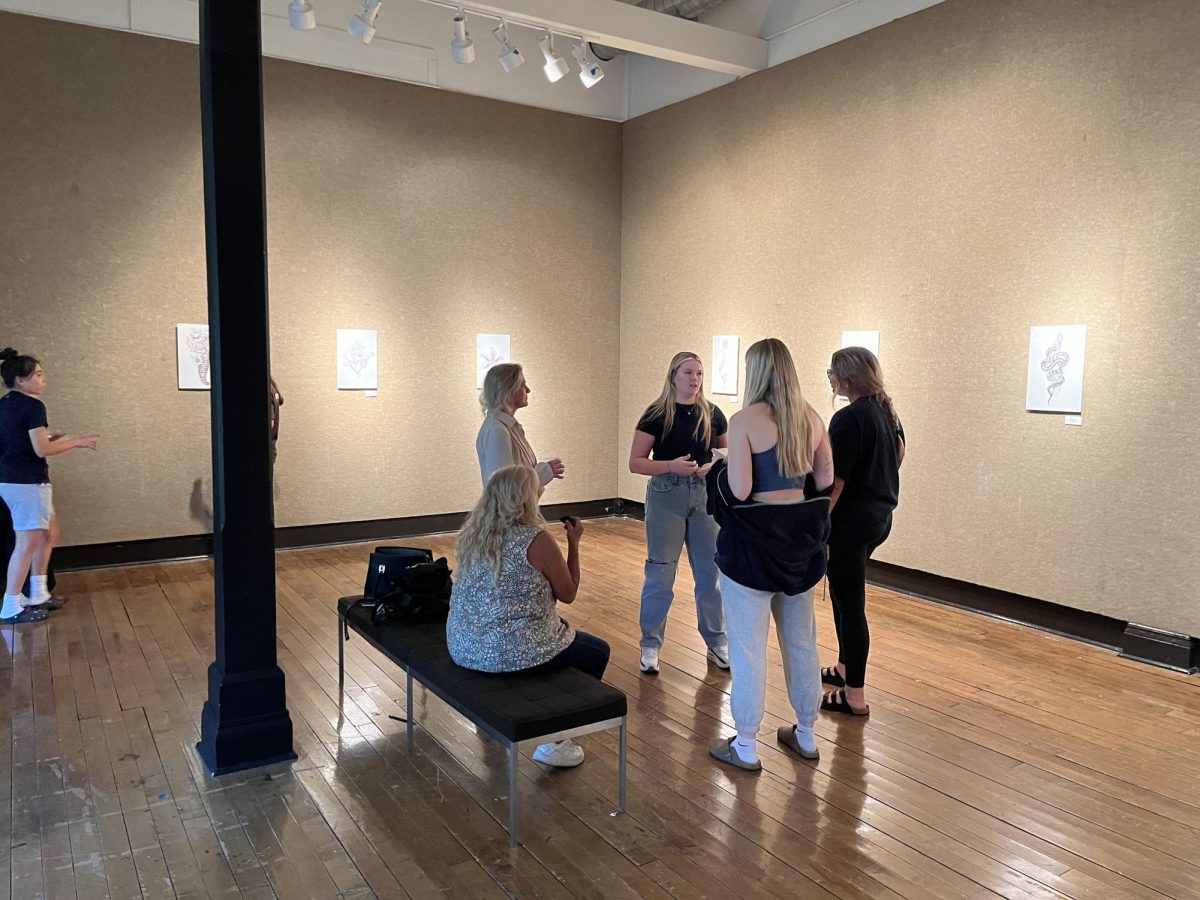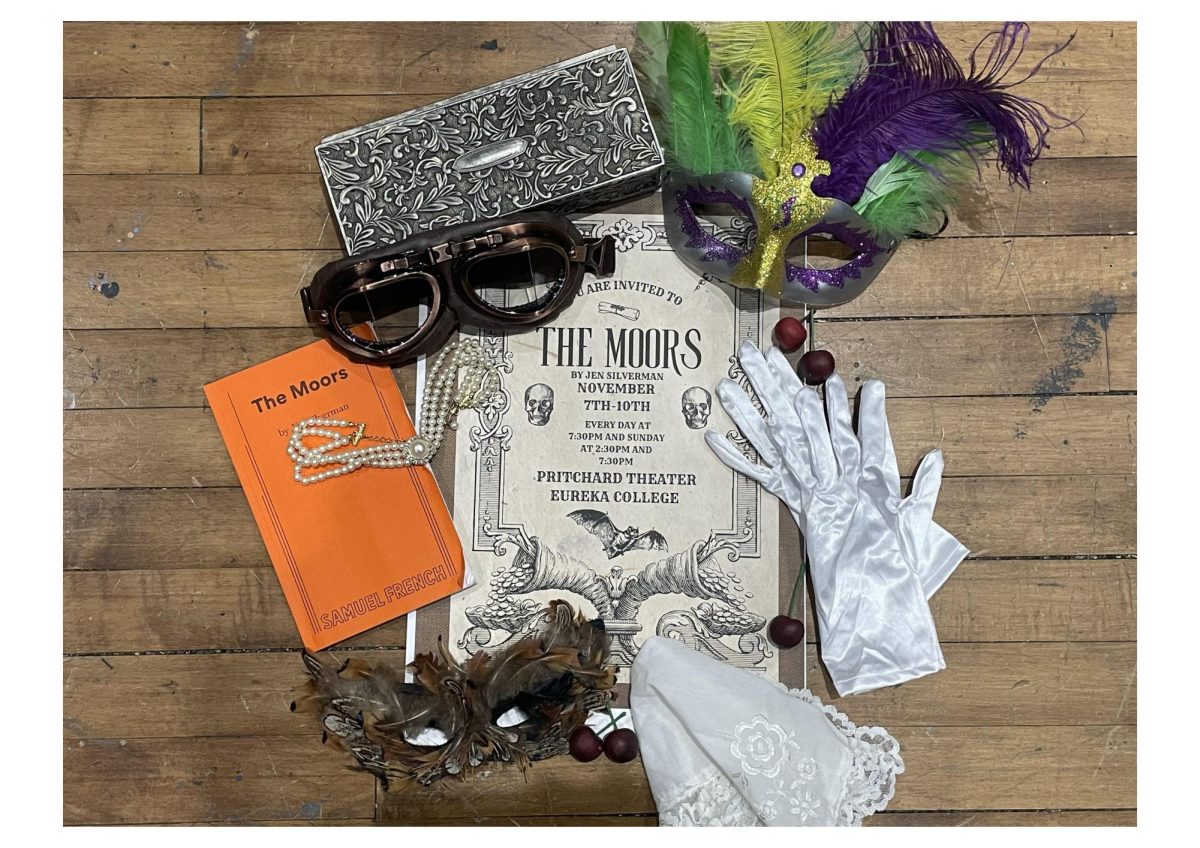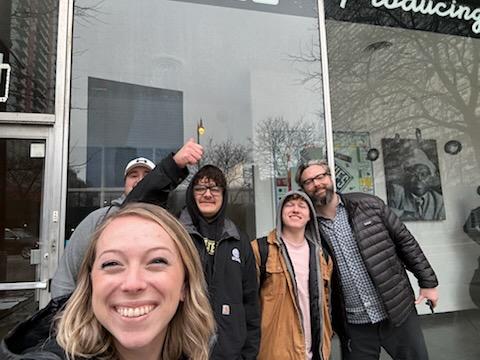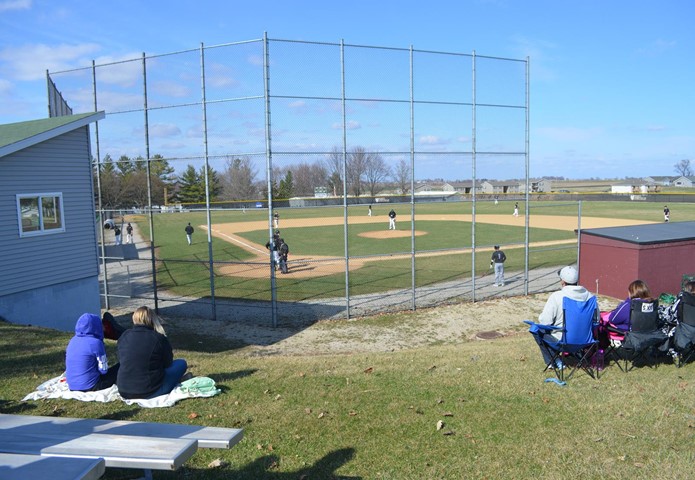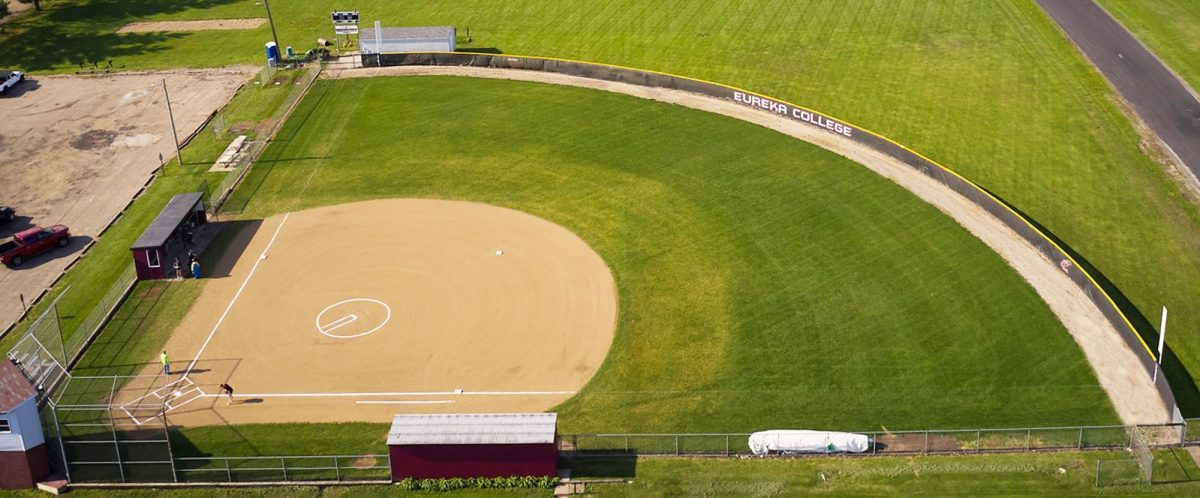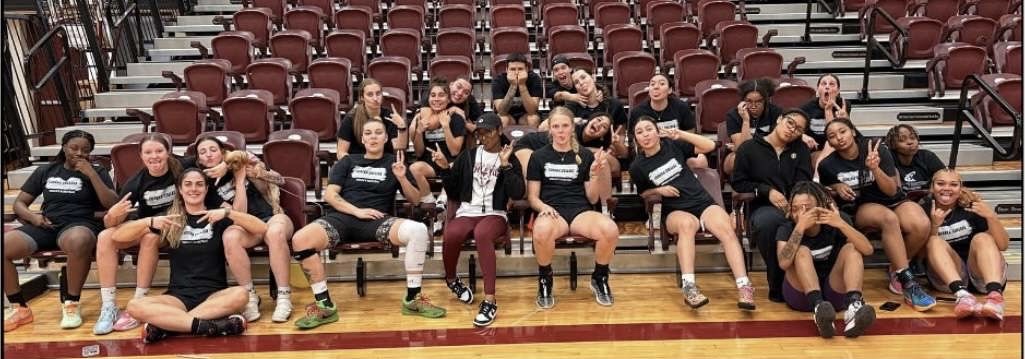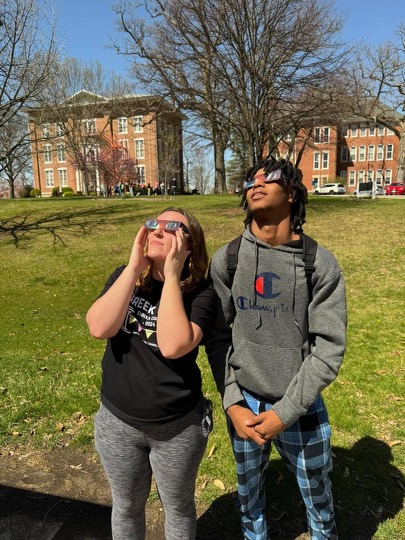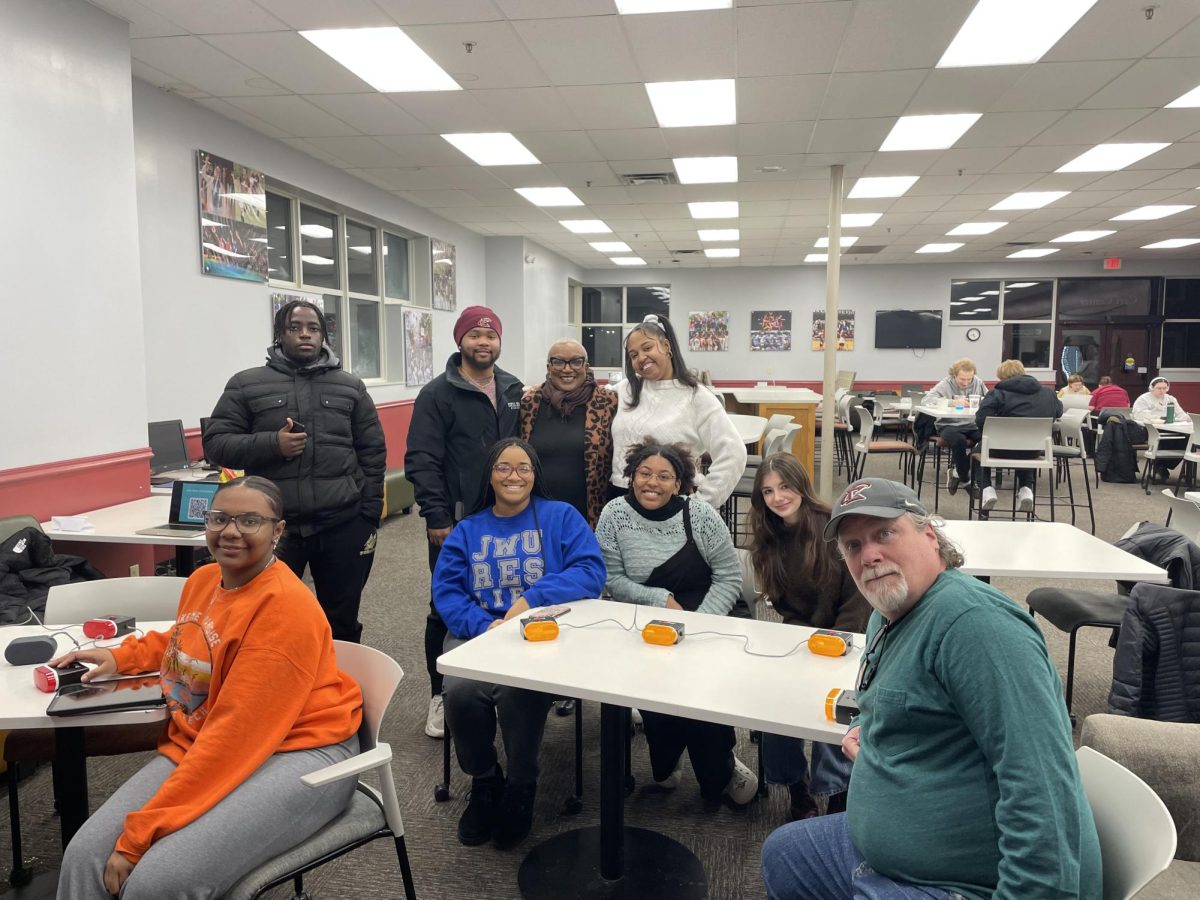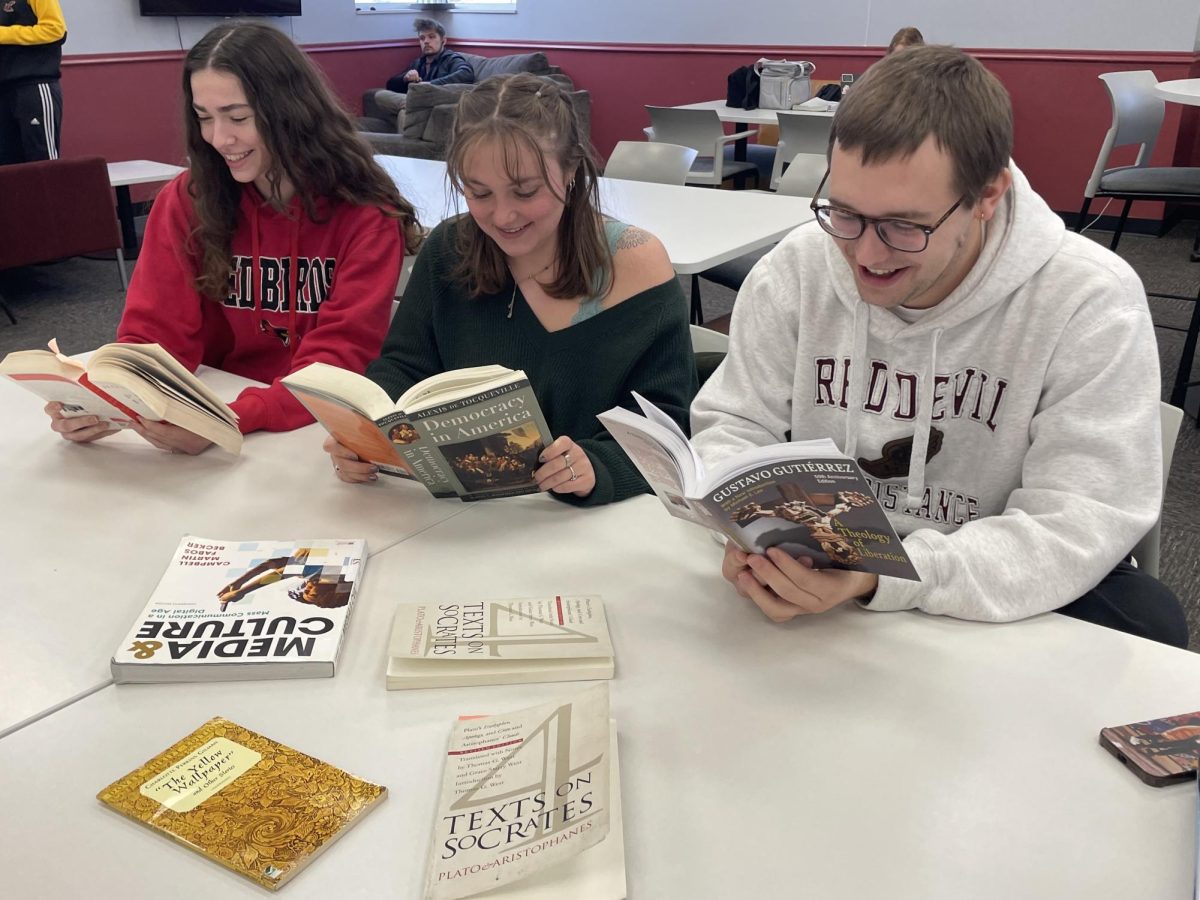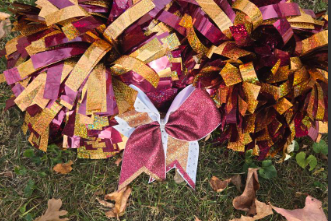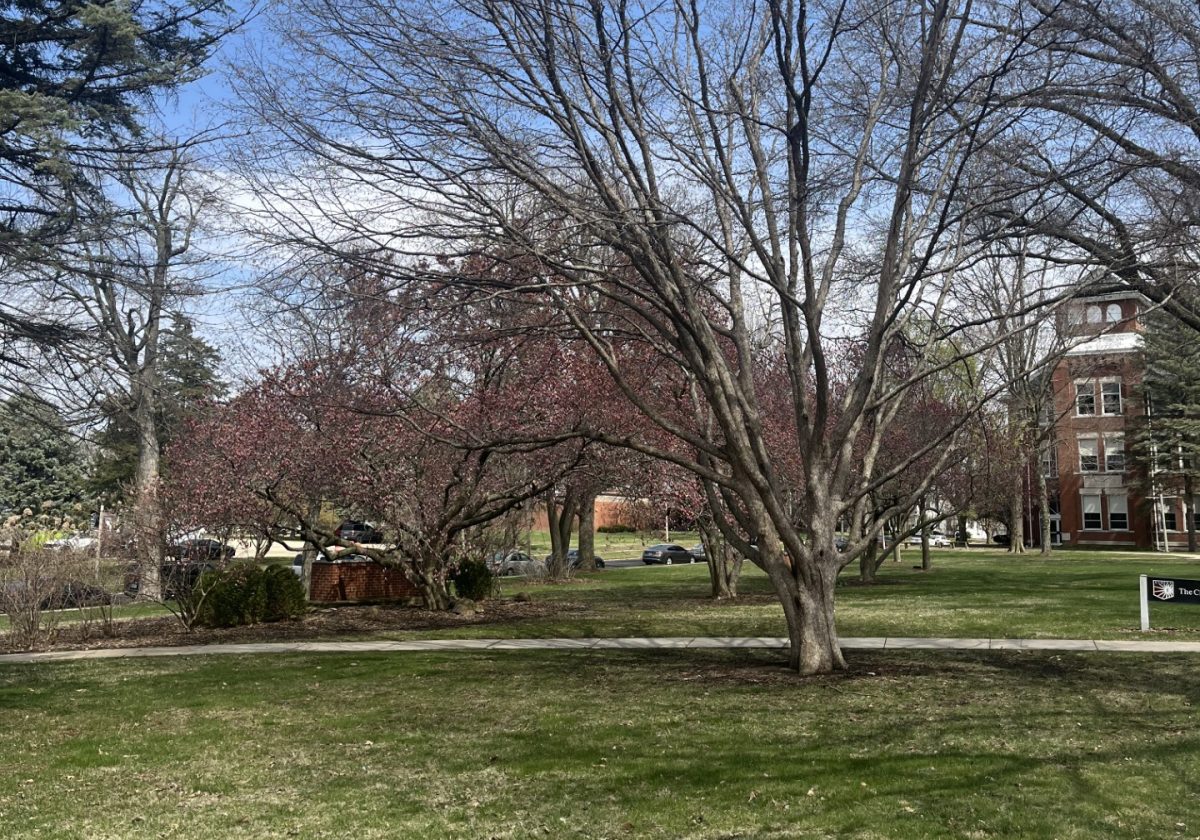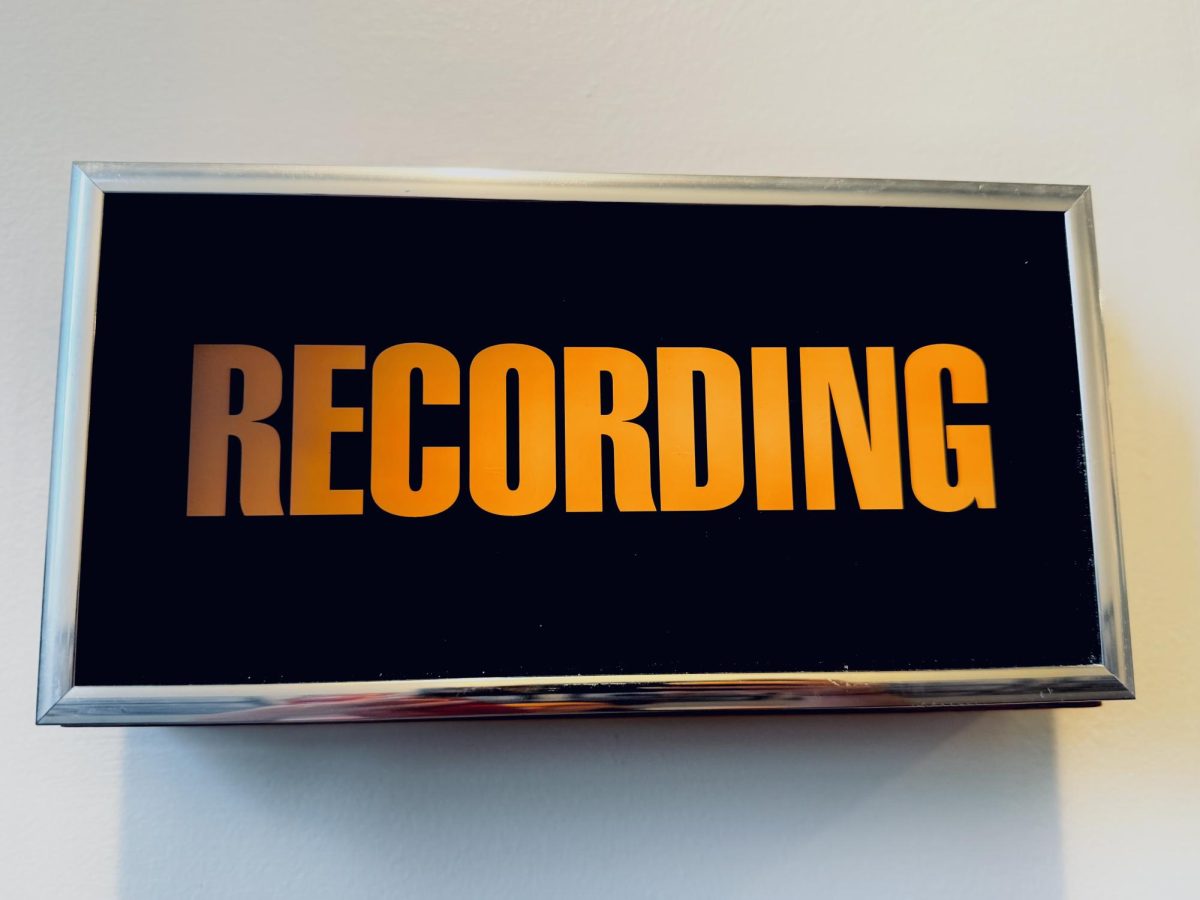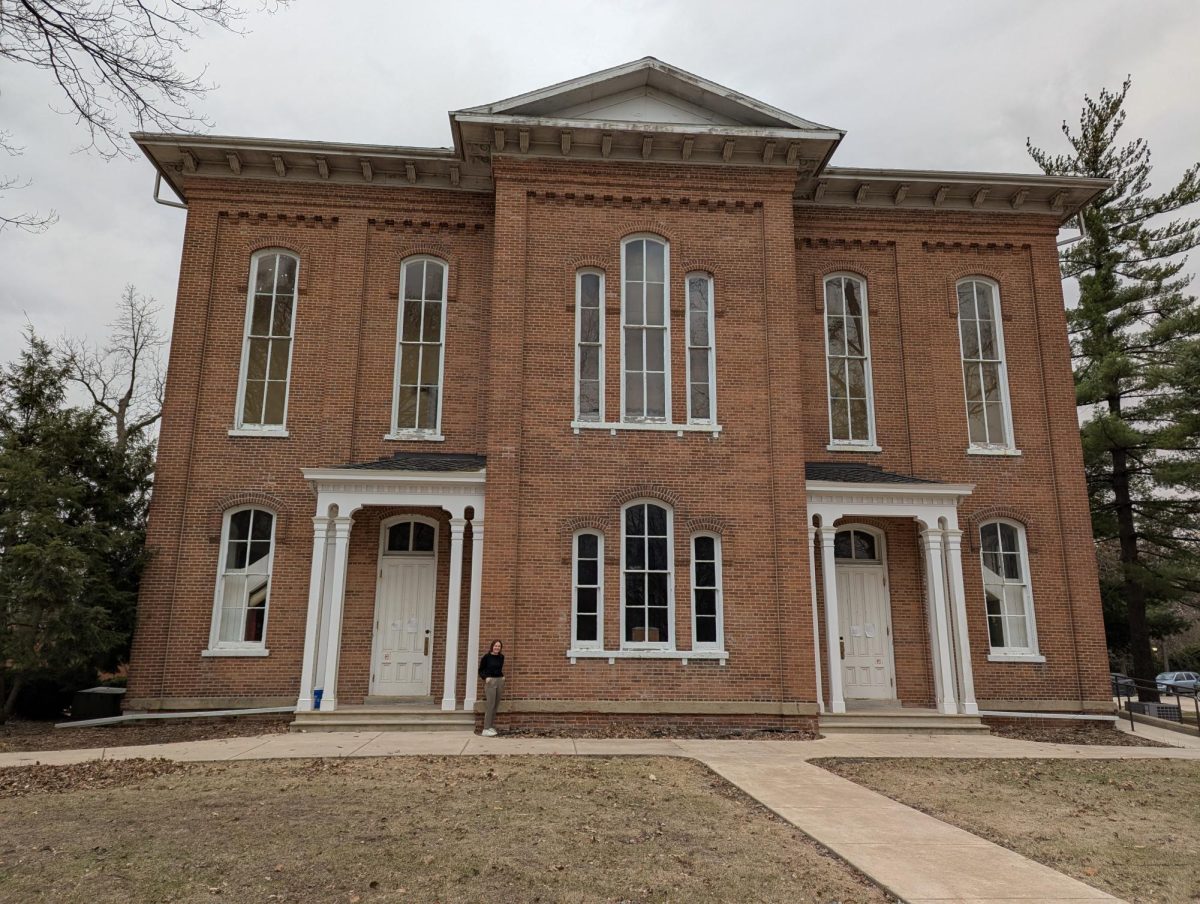April 8th, 2024 will be remembered as a day where the Eureka College campus was buzzing with excitement to witness a rare event in terms of astronomy, a solar eclipse. The sun, the moon, and the Earth were perfectly aligned, casting a shadow over the campus, creating a sense of wonder and awe among those fortunate enough to witness the celestial rarity.
“A solar eclipse changes the illumination of the Earth and its atmosphere under a comparatively small region of the Moon’s shadow”, NASA scientists said.
Luckily, scientists have developed safe ways to view the solar eclipse considering the ultraviolet rays from the sun are harmful to one’s eyes.
“You must look through safe solar viewing glasses (“eclipse glasses”) or a safe handheld solar viewer at all times. Viewing any part of the bright Sun through a camera lens, binoculars, or a telescope without a special-purpose solar filter secured over the front of the optics will instantly cause severe eye injury,” a scientist from NASA said.
Usually, people are advised to wear the protective sunglasses made for the eclipse called “Solar Viewers,” but people have found their own ways to view the eclipse safely. Professor Erica Quinn, a history professor at Eureka College, and her husband took a unique approach.
“My husband and I took a peek at it through his welding mask,” Professor Quinn said.
That is a unique way to view the rare event, but it should be noted that only welding masks with a grade of 12 or higher can safely view a solar eclipse.
Students at Eureka College can consult with Professor Erica Quinn about the historical significance that the eclipse holds to various people and cultures. It is quite a rare event that has been observed and celebrated by civilizations around the world for thousands of years.
“Ancient civilizations like the Mayans and Chinese had accurate, sophisticated calendars and star charts that they used to prophesy. Events like eclipses were often understood as omens or portents, certainly in ancient and medieval Europe. Under Christianity, these omens were often seen as negative indicators of God’s displeasure,” Professor Quinn said.
Eureka College staff informed the students through the “Eureka Happenings” weekly email that the eclipse was happening so that everyone who wanted to, could take part. Protective sunglasses were handed out in front of the Office of Student Life, or the Whetzel House.
As the moon slowly moved in front of the sun, the campus was engulfed in an eerie darkness, as if the world was in a twilight of some sort. Many students had their picture taken by some of the Eureka College staff as they looked on towards the sun with their protective glasses. Students showed a big interest in the eclipse, making it a great start to kick off the spring weather.
Sydney Gillis, a junior majoring in Chemistry at Eureka College enjoyed her time at the eclipse as much as anyone could have.
“I was really excited. I heard about it a while before, so I was prepared and really excited to see it,” Sydney said.
Sydney watched the eclipse with her boyfriend and a group of people right outside the Eureka College lounge and food center called “The Burgoo.” Many students enjoyed being able to view the eclipse while also having access to food, drinks, and comfortable seating. It was a good combination to boost everyone’s mood on campus.
“I think it made everyone happier. It was cool seeing everyone outside and kind of felt more college-like,” Sydney said.
Many other students enjoyed the solar eclipse as well. Members from different fraternities, sororities, clubs, and sports teams were all out to see the eclipse. One of those faces being Ratayia Bias, the Eureka College wrestling team manager.
“I think it was cool to see so many students outside with their glasses to watch the eclipse. It honestly felt like a bonding experience, and I think it made me value Eureka more,” Ratayia said.
As rare as a solar eclipse may be, individuals in this era have been blessed to have the opportunity to view two eclipses in just seven years. Considering that the next eclipse is in 2044. The solar eclipse is an event that brings people together in a shared experience of wonder and contemplation. It is a reminder that people should cherish the moments they are living in, because they may not come for nearly another 20 years!


